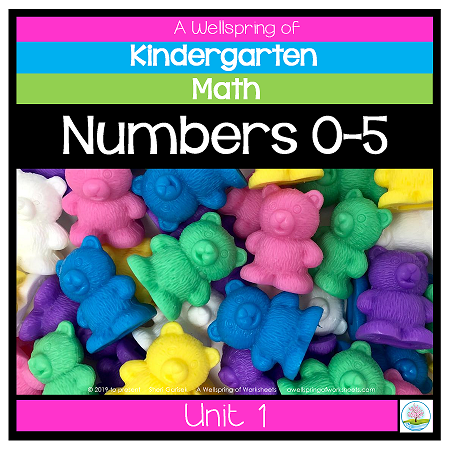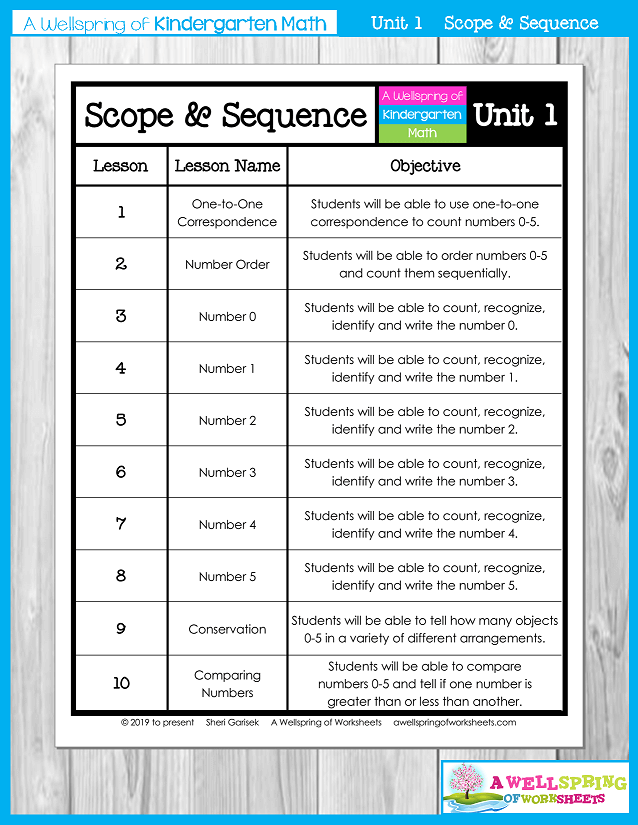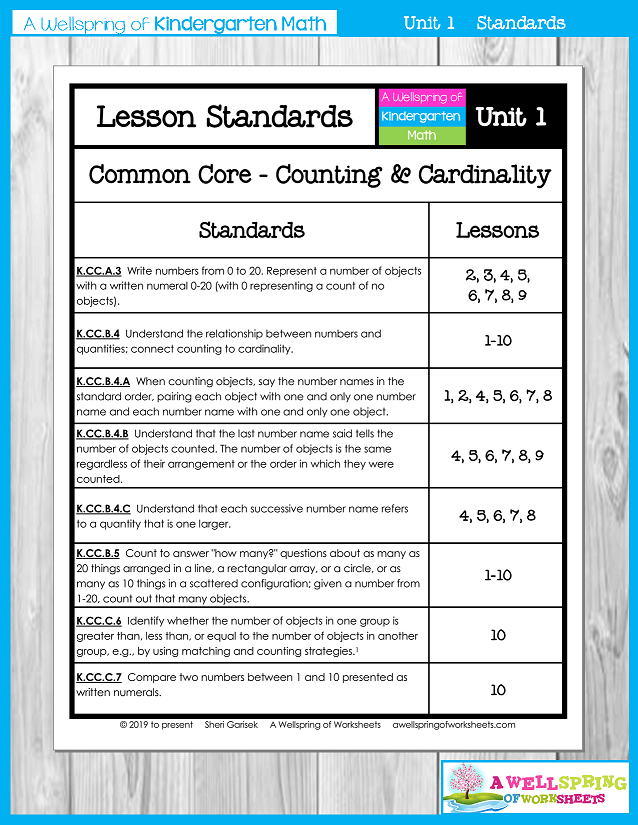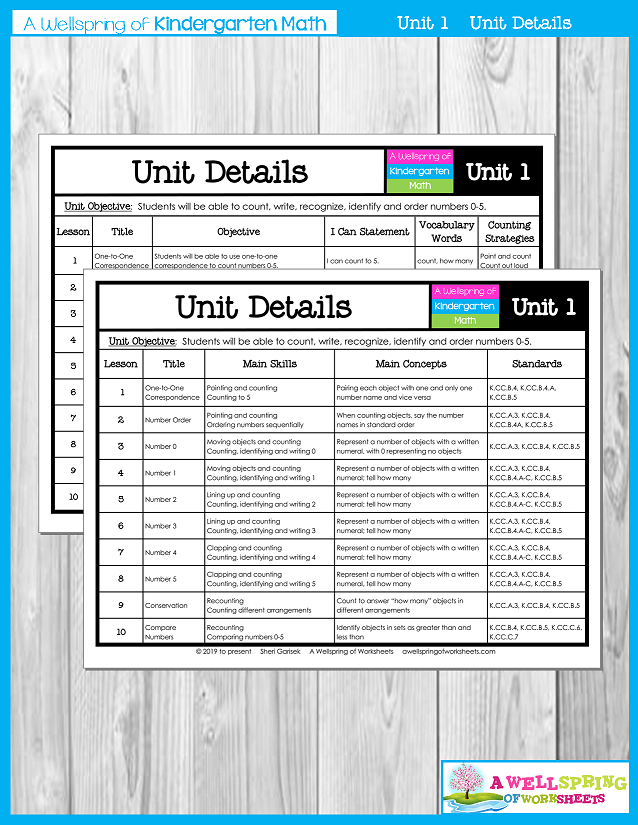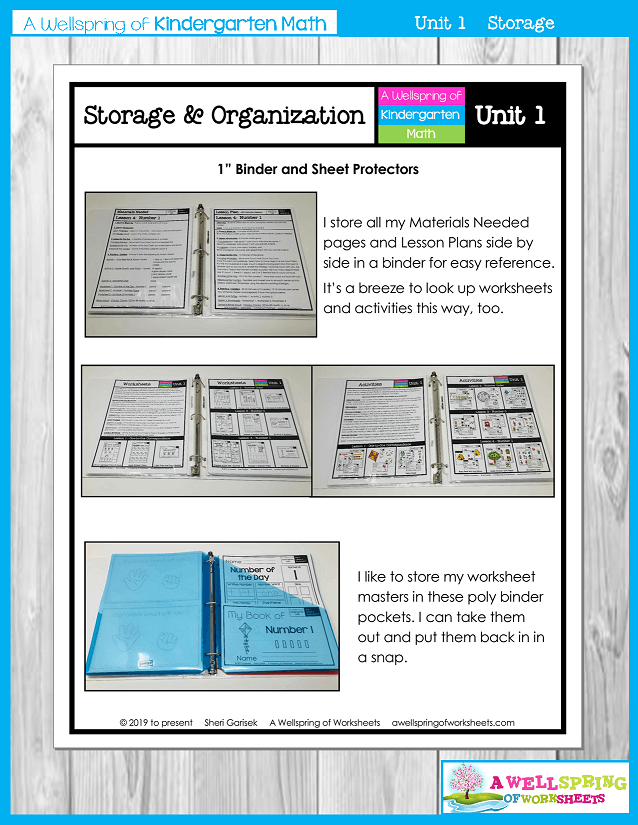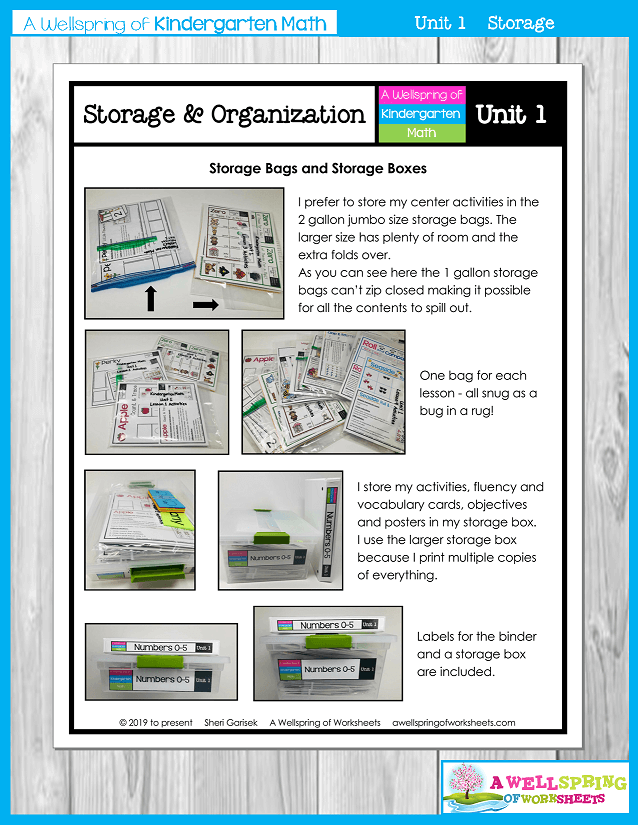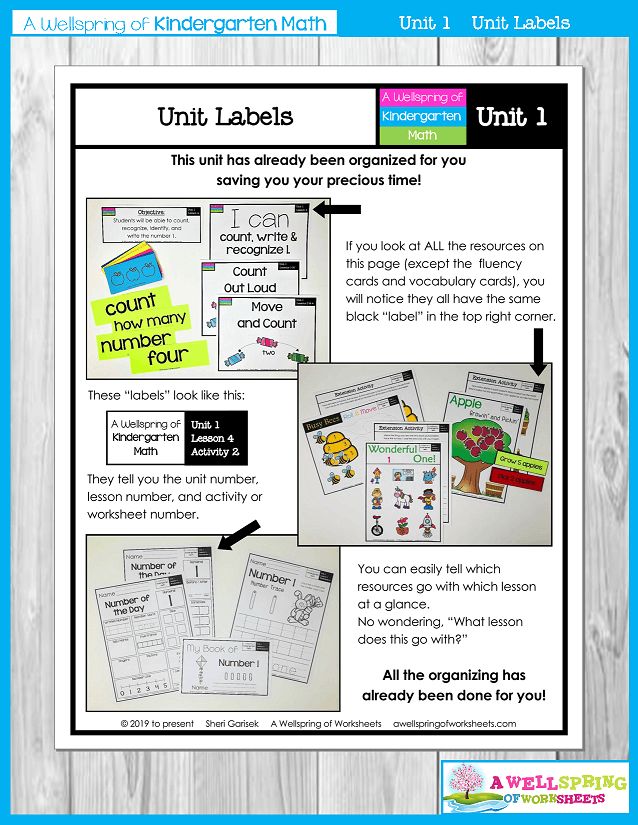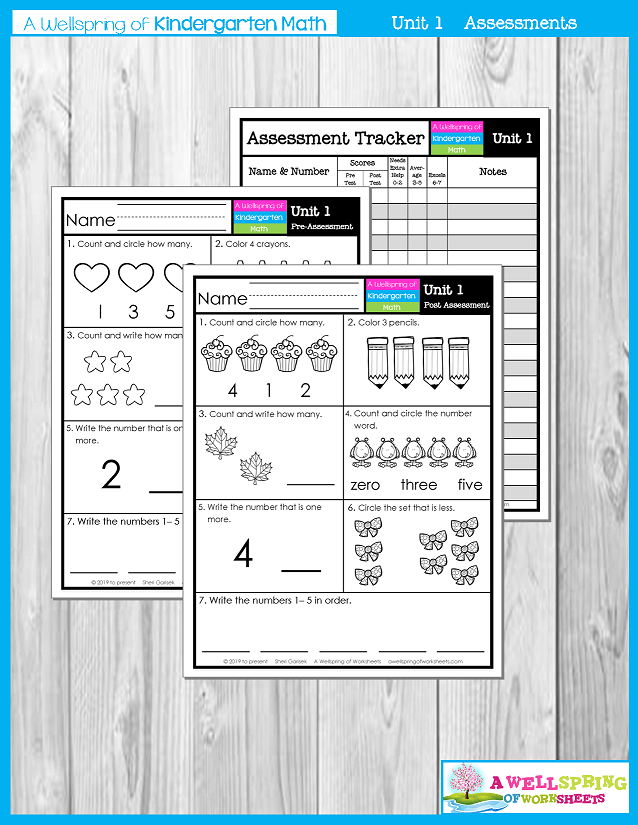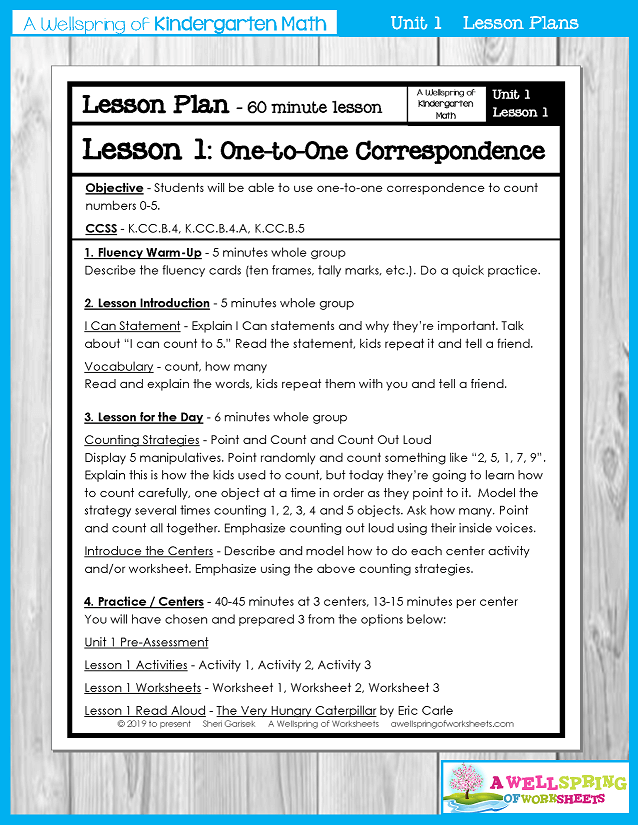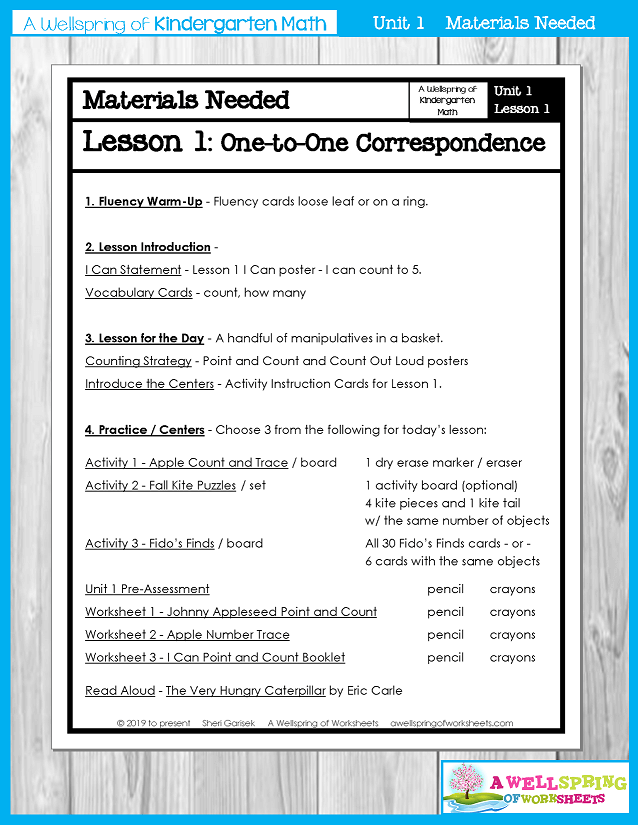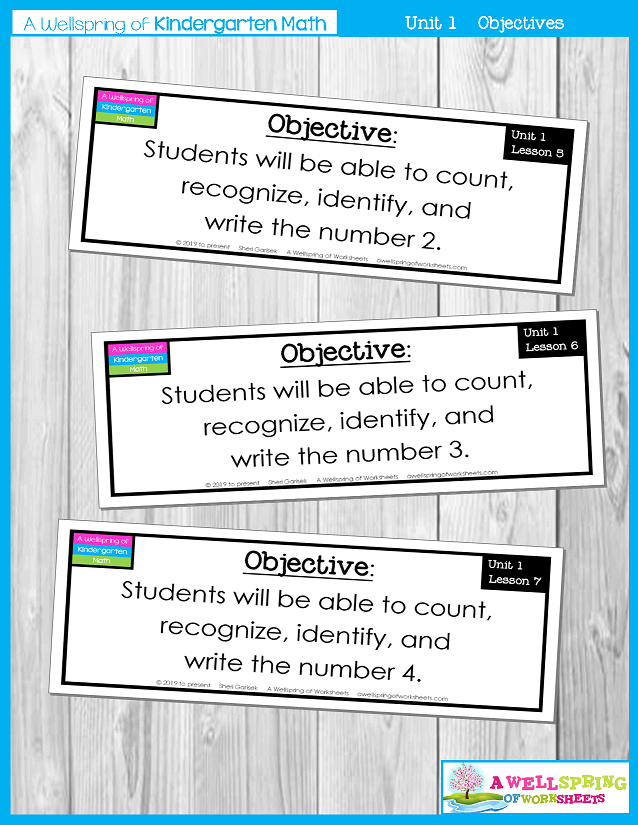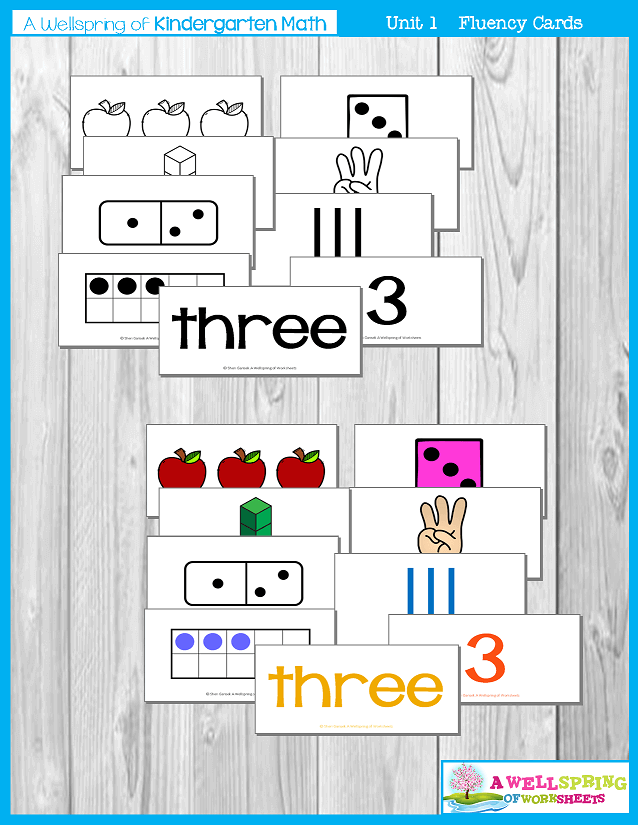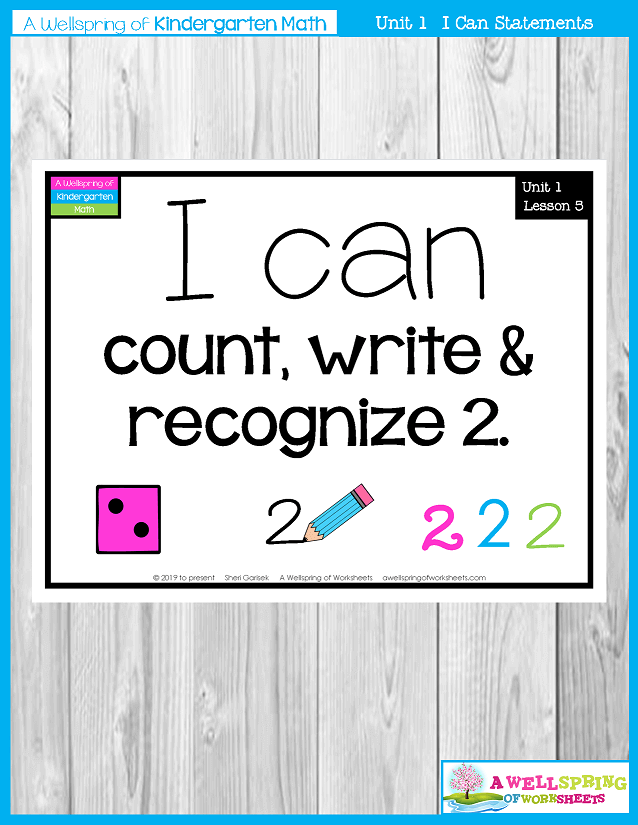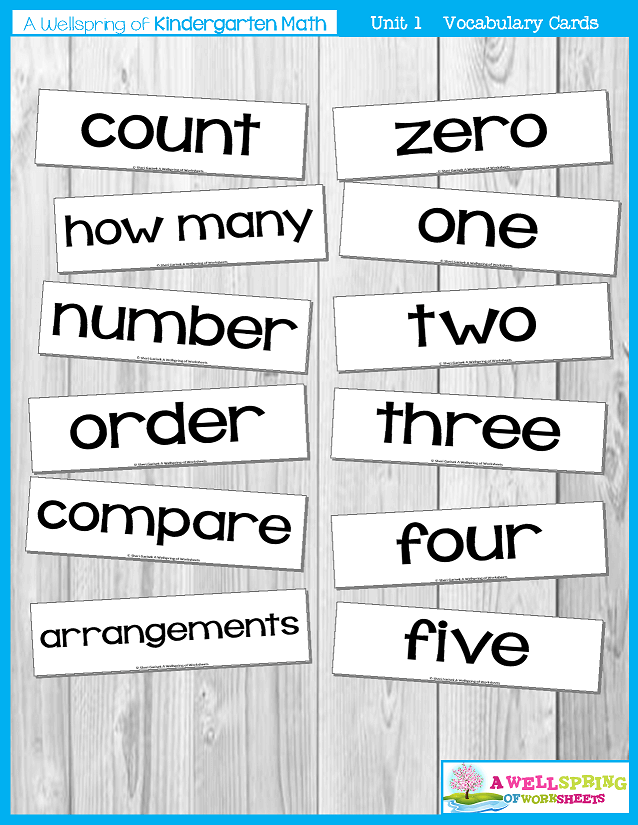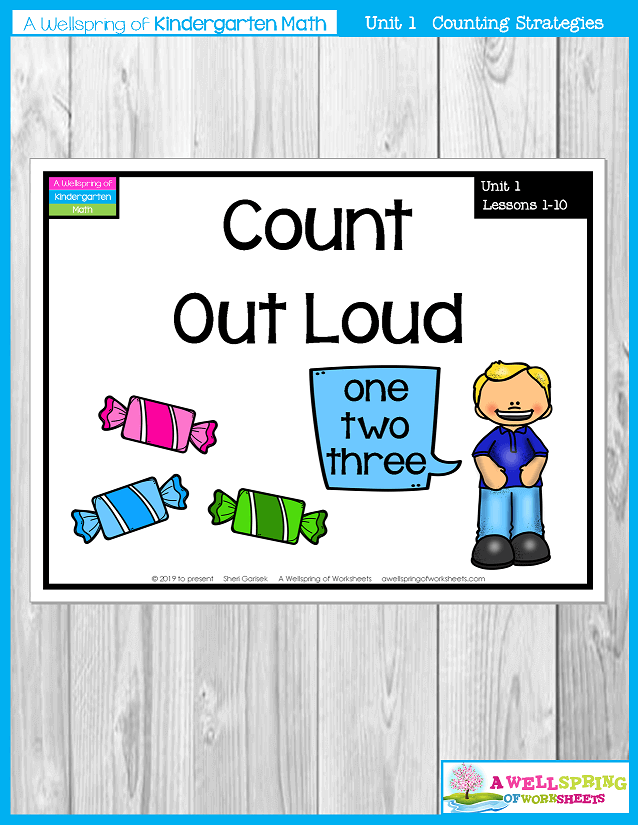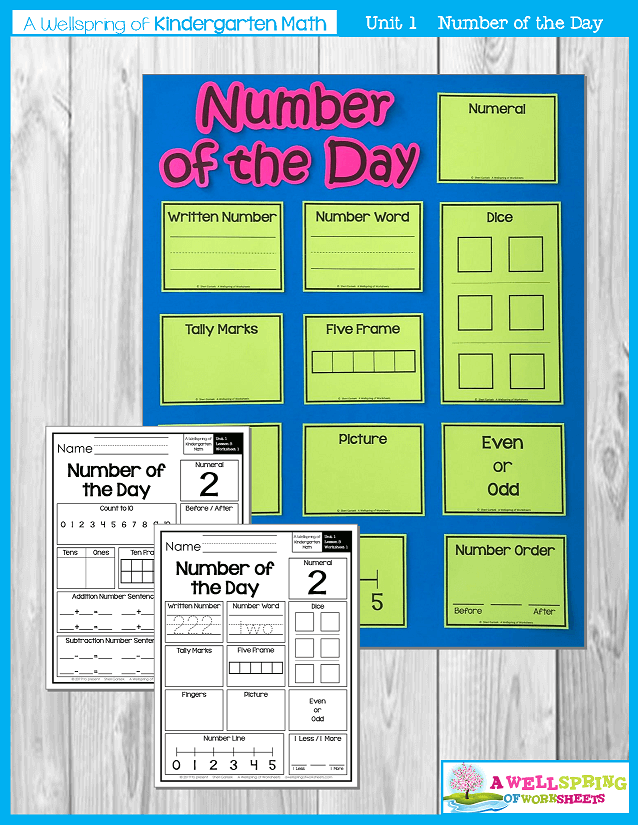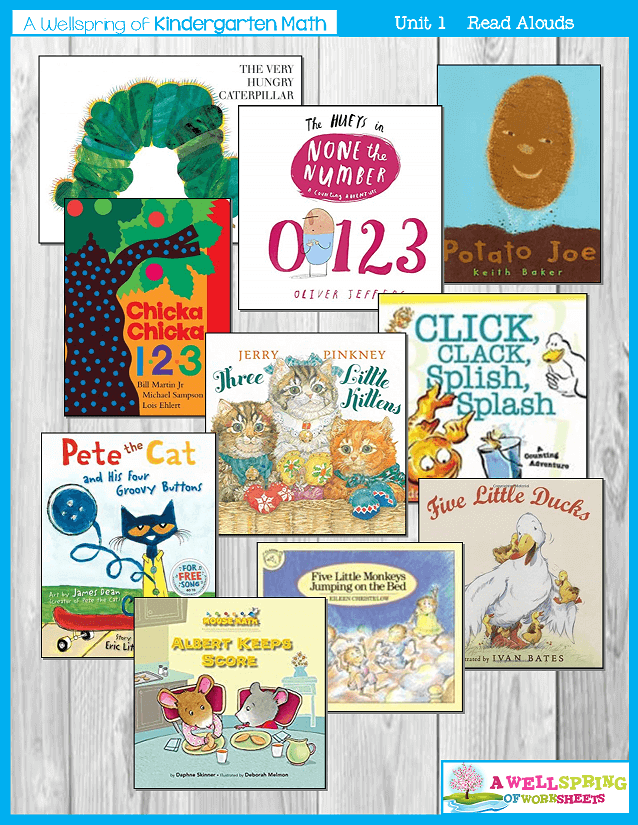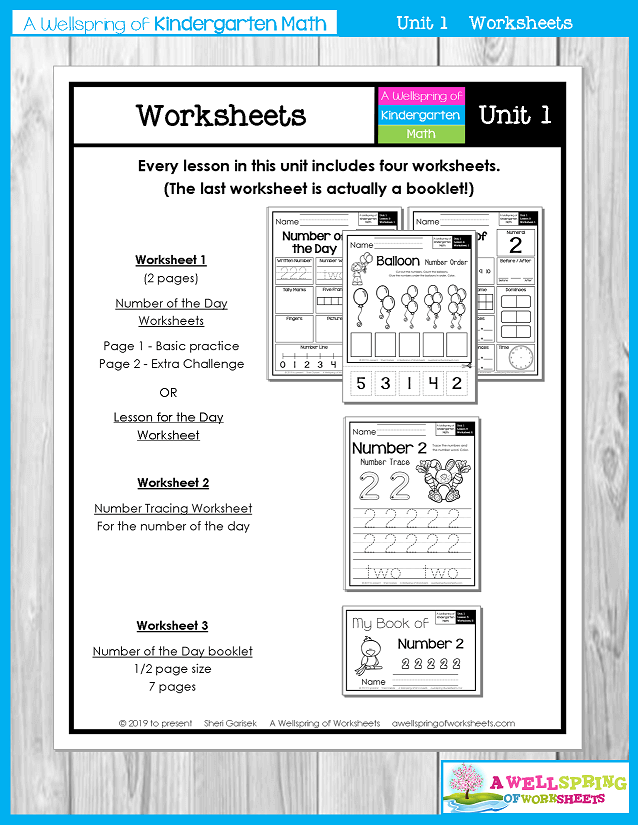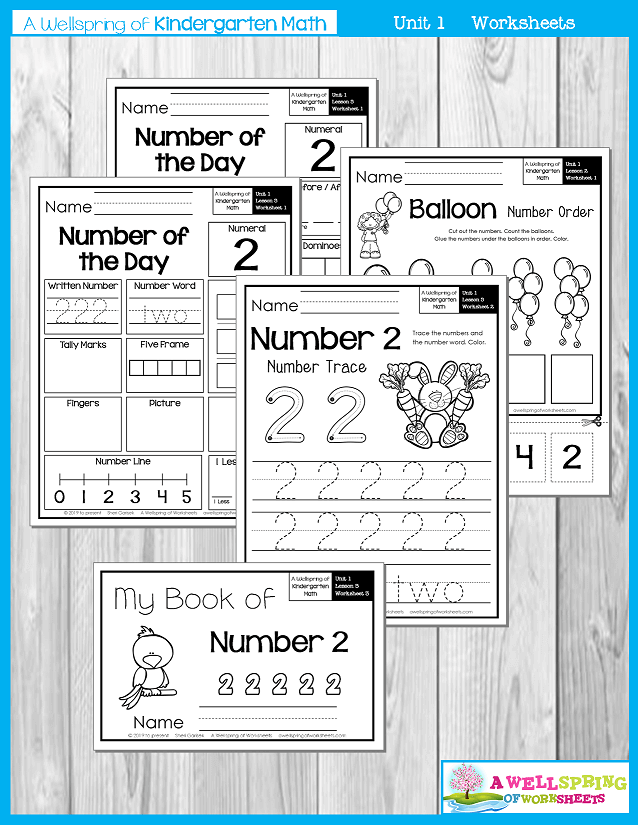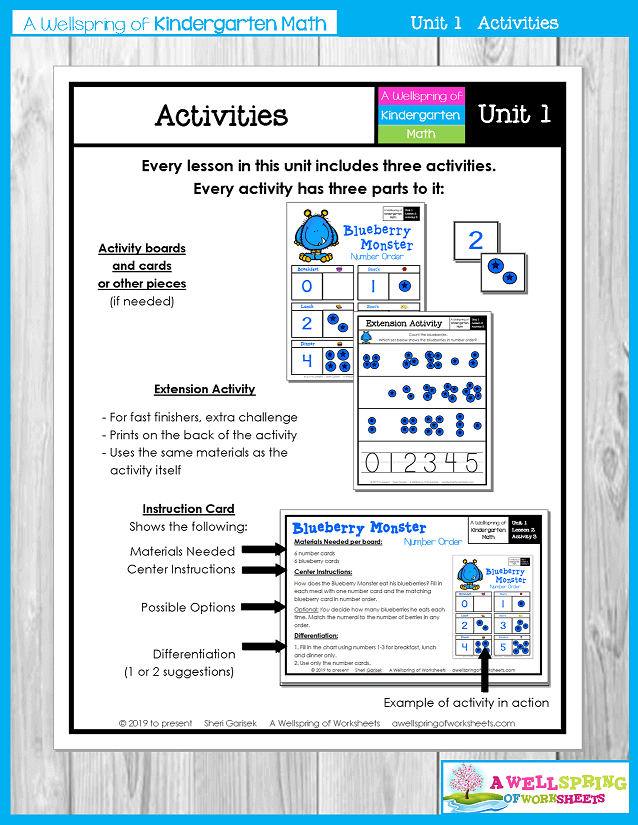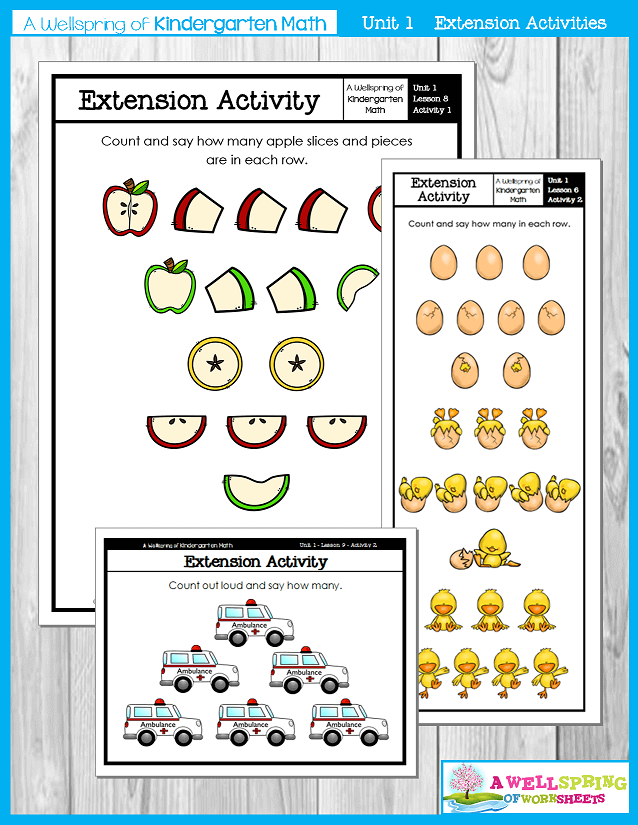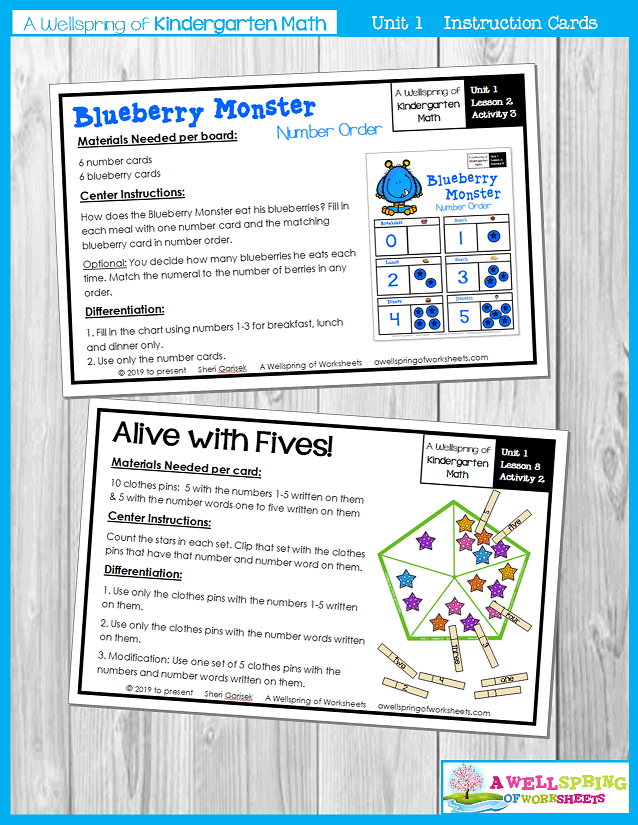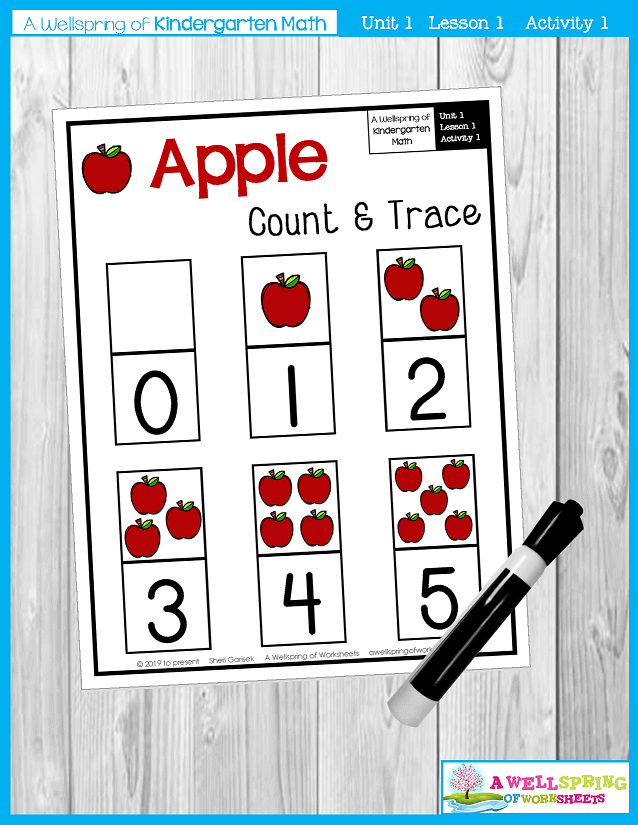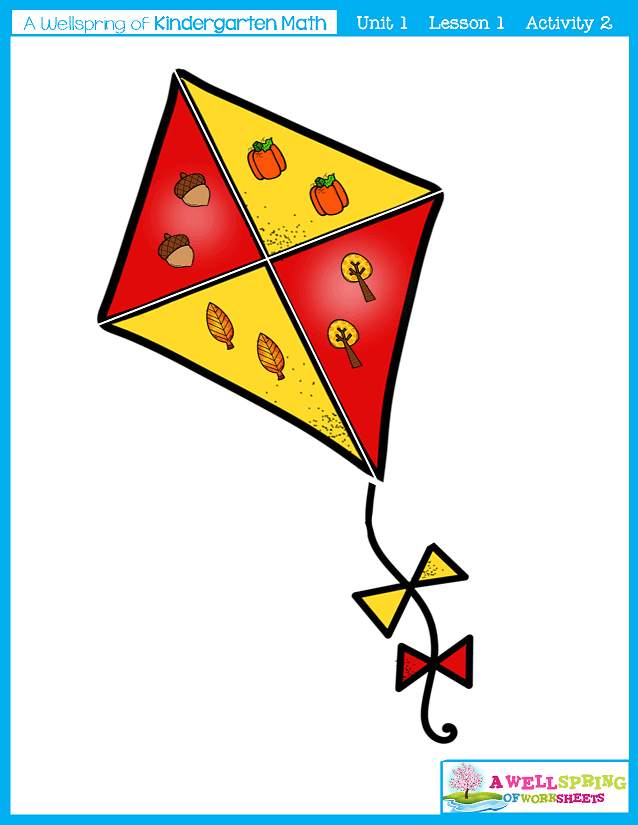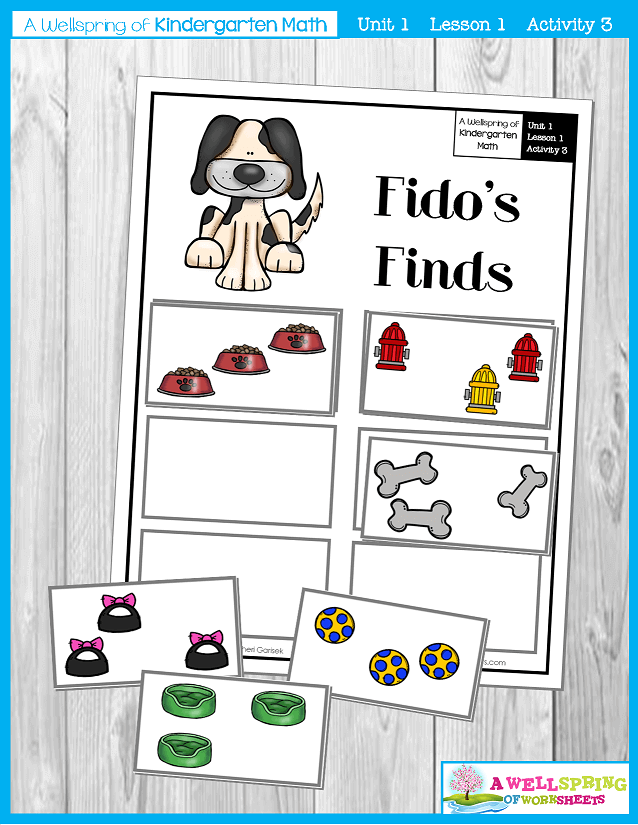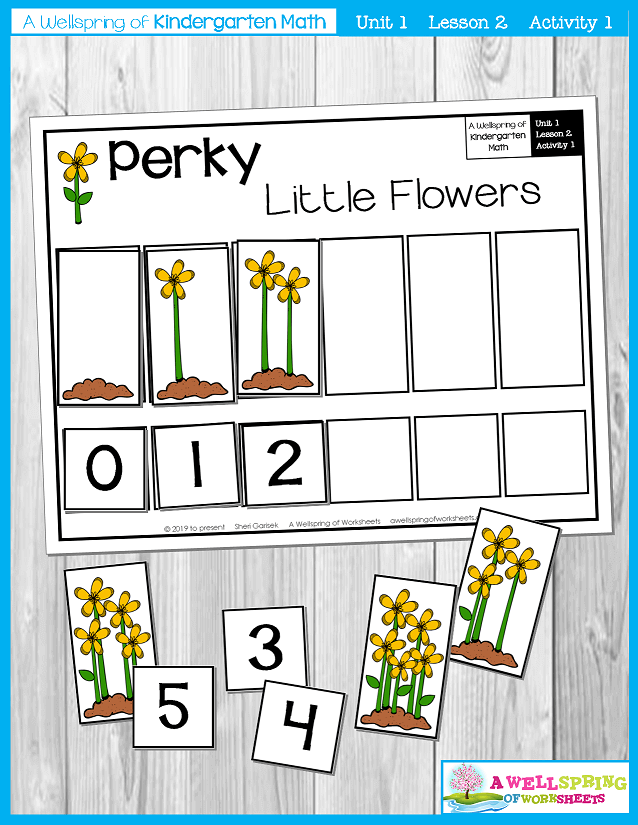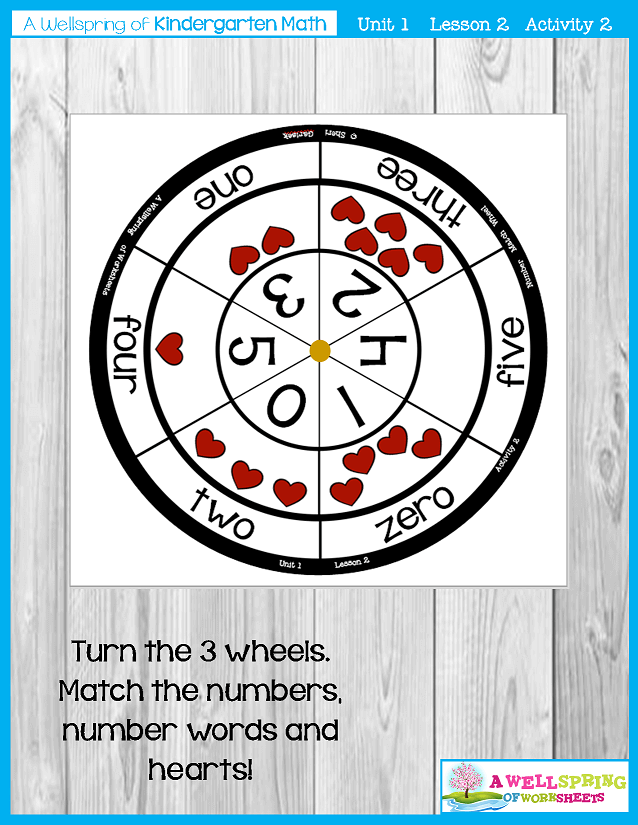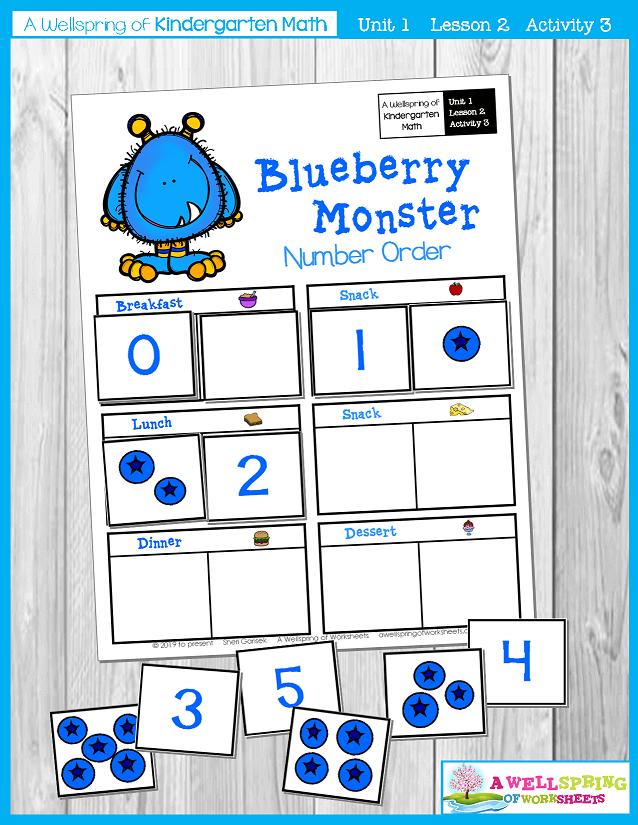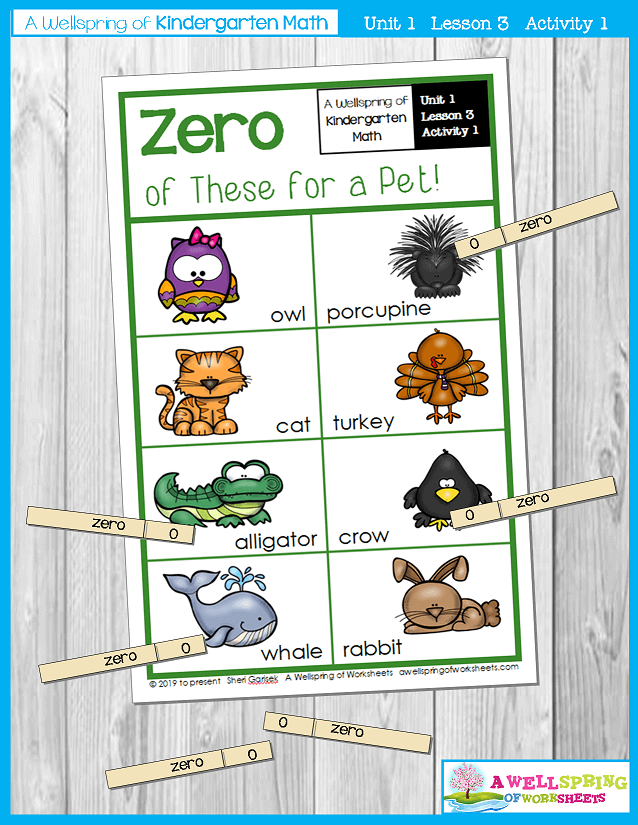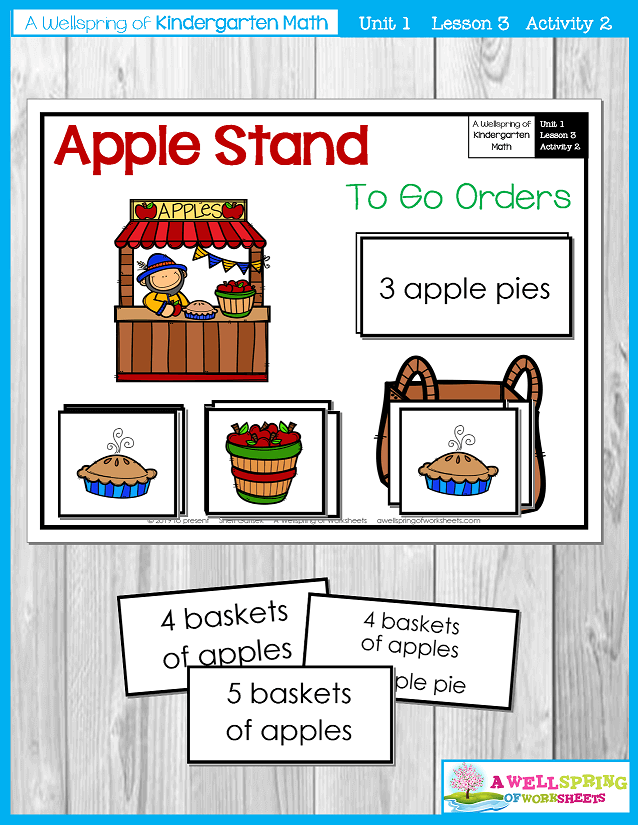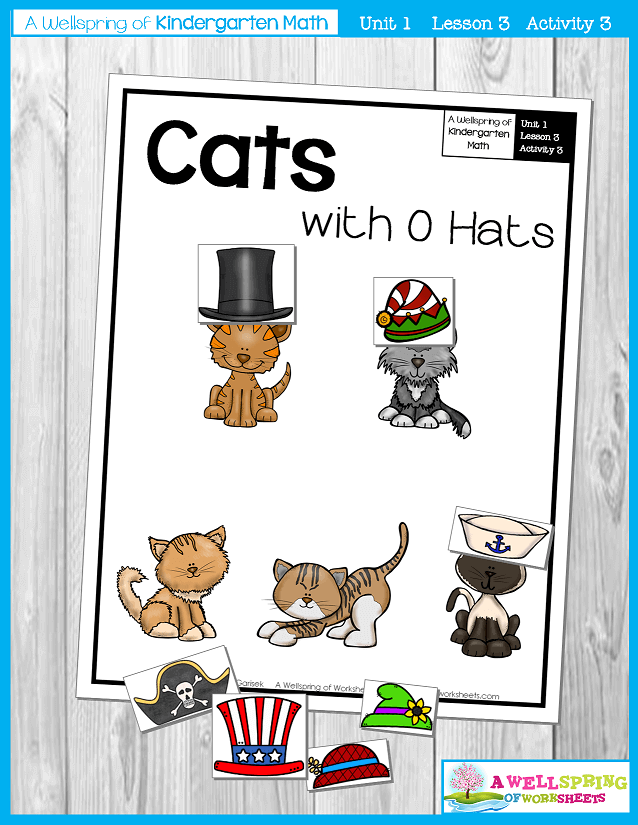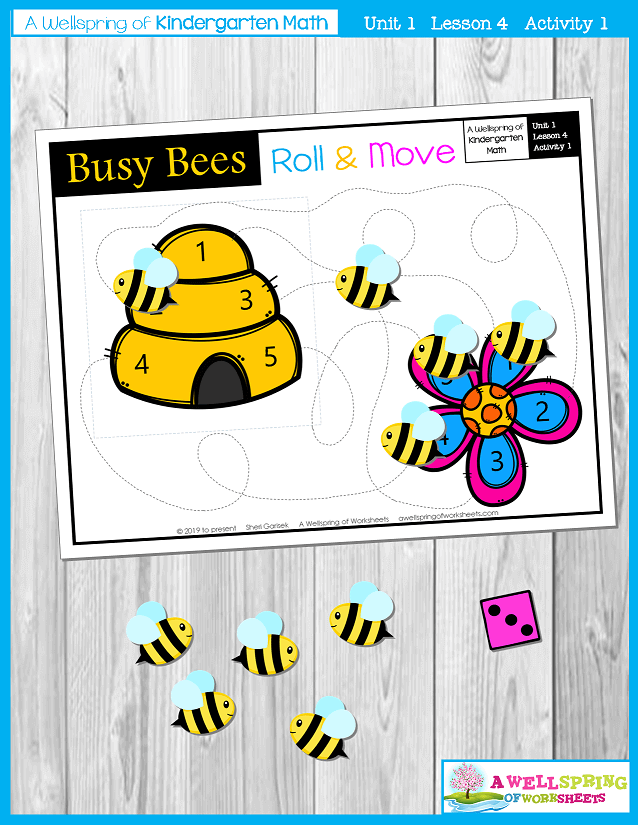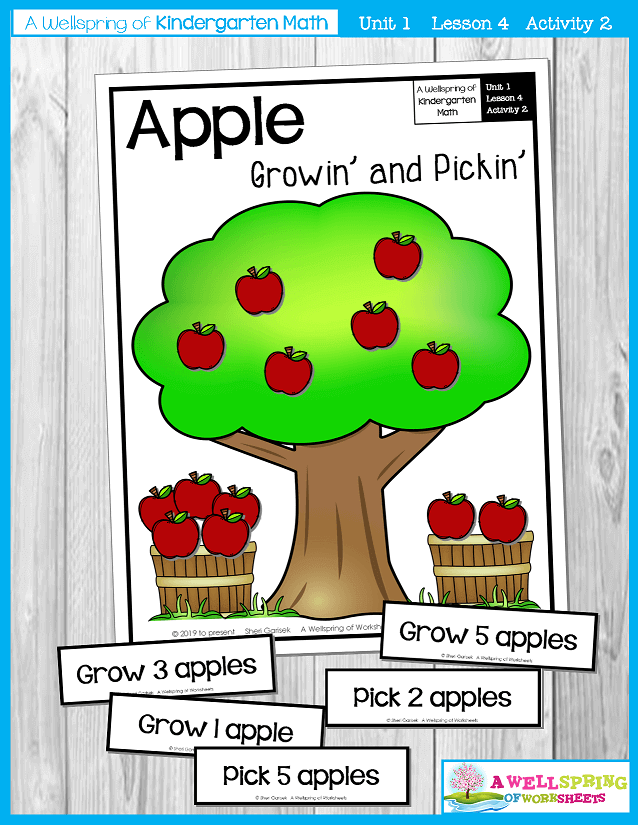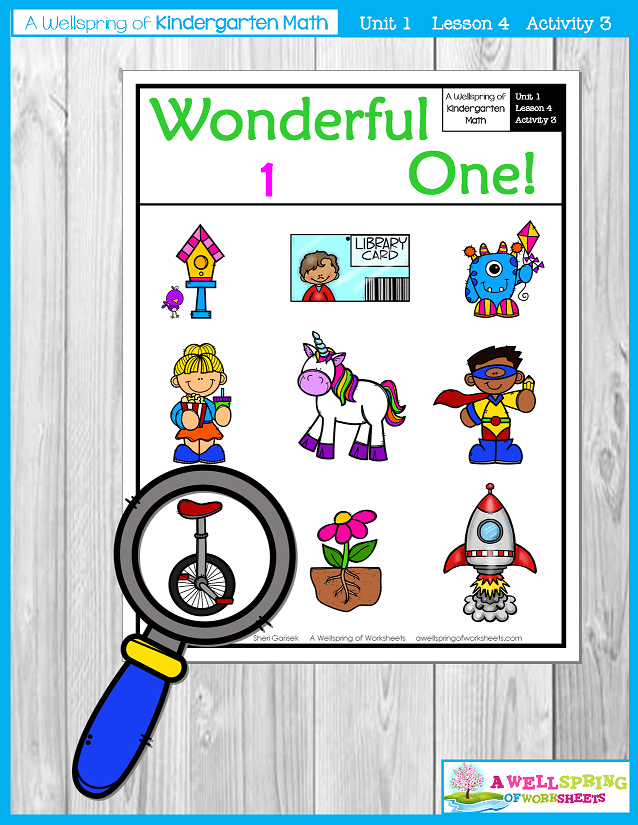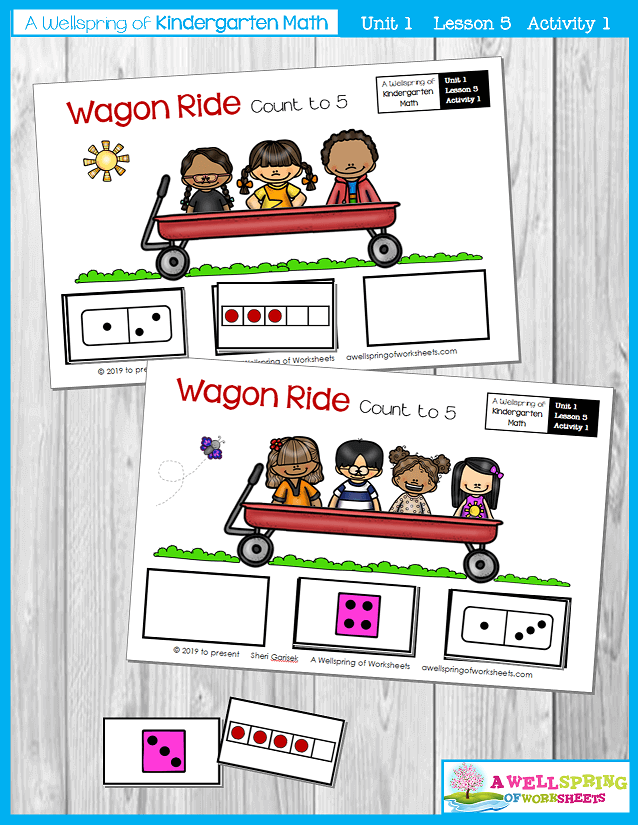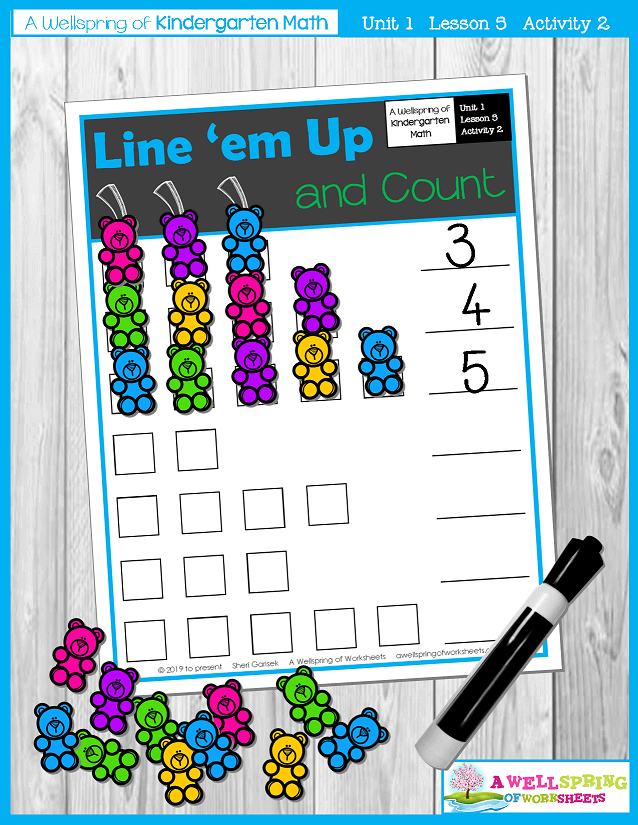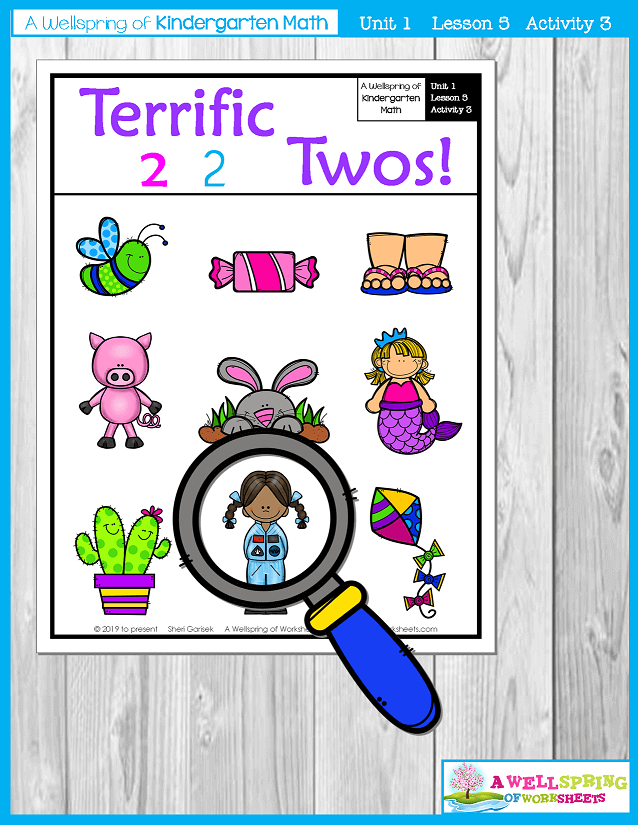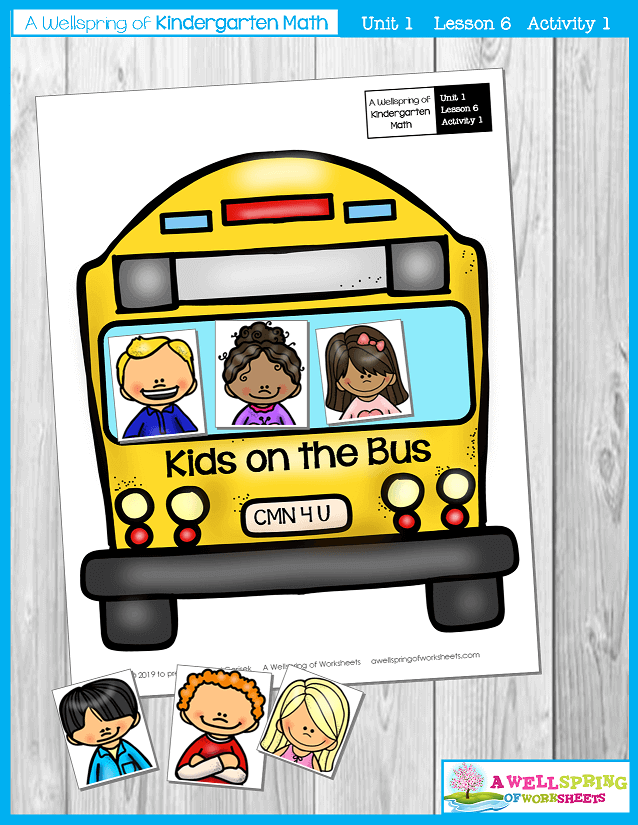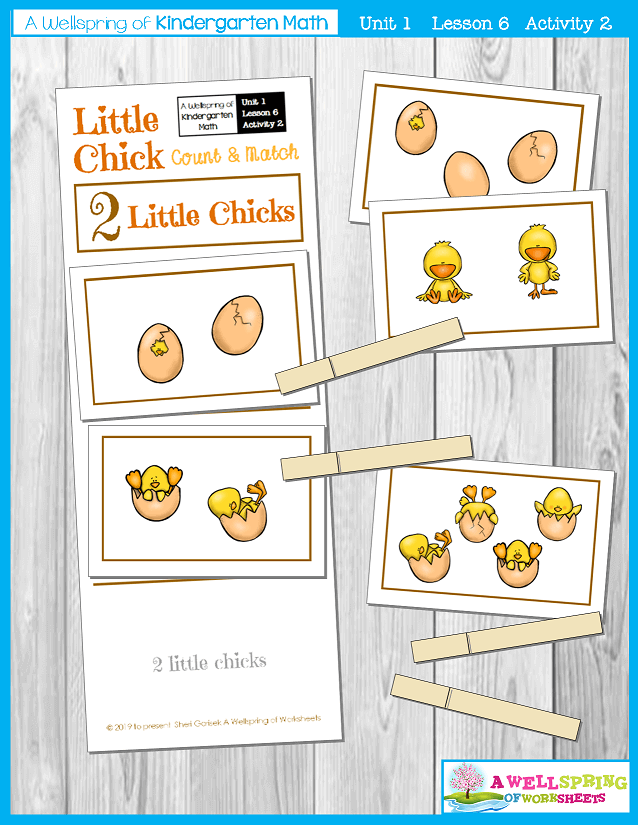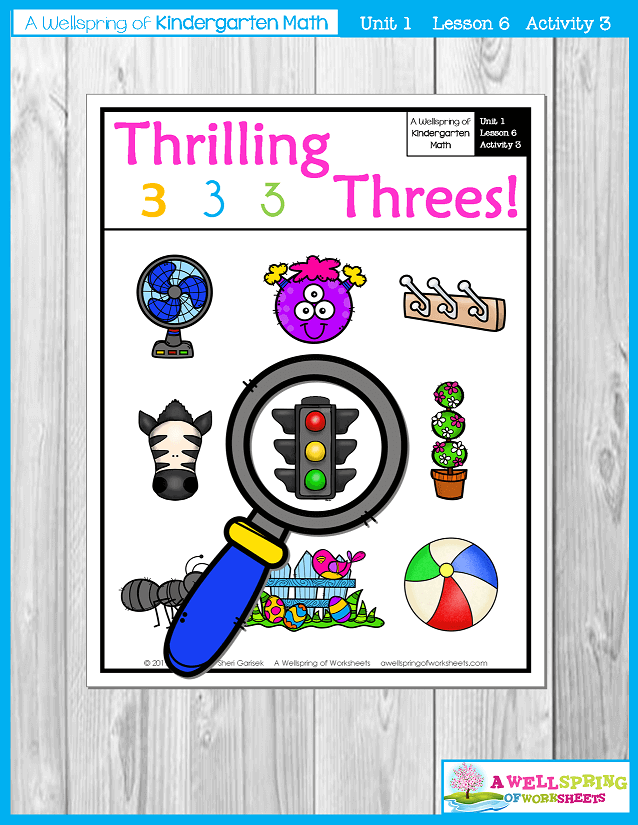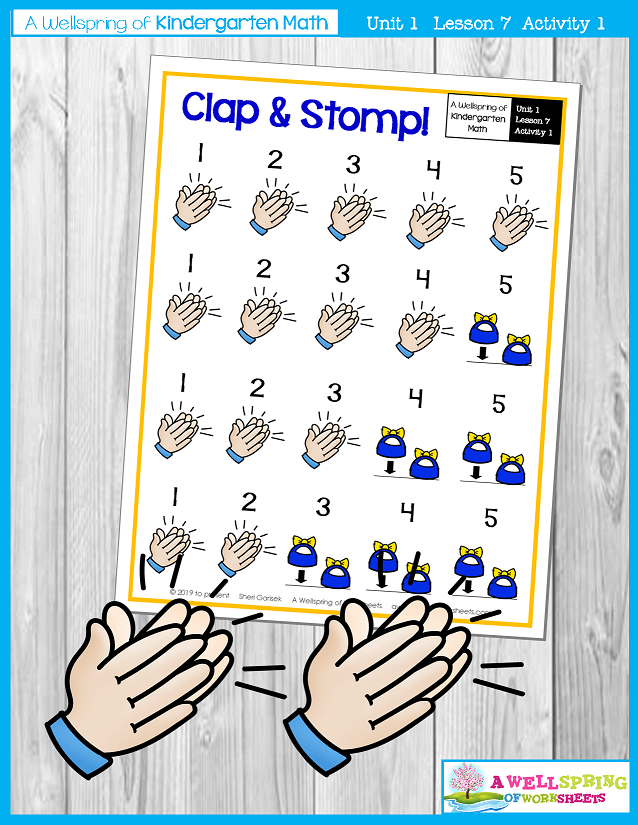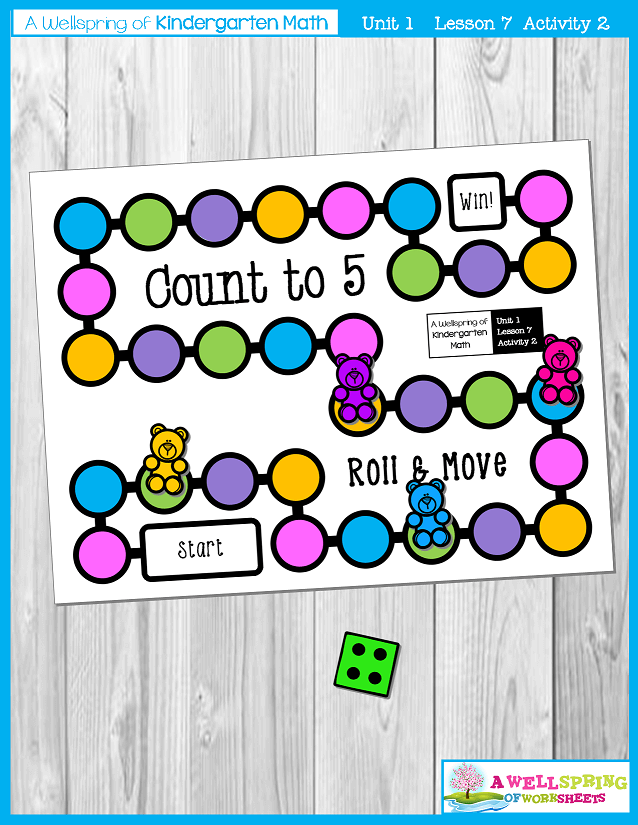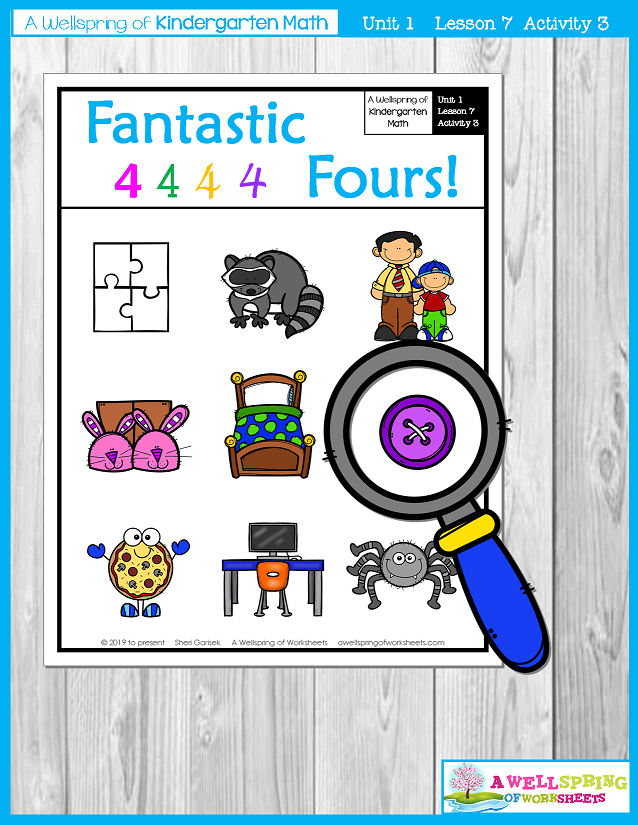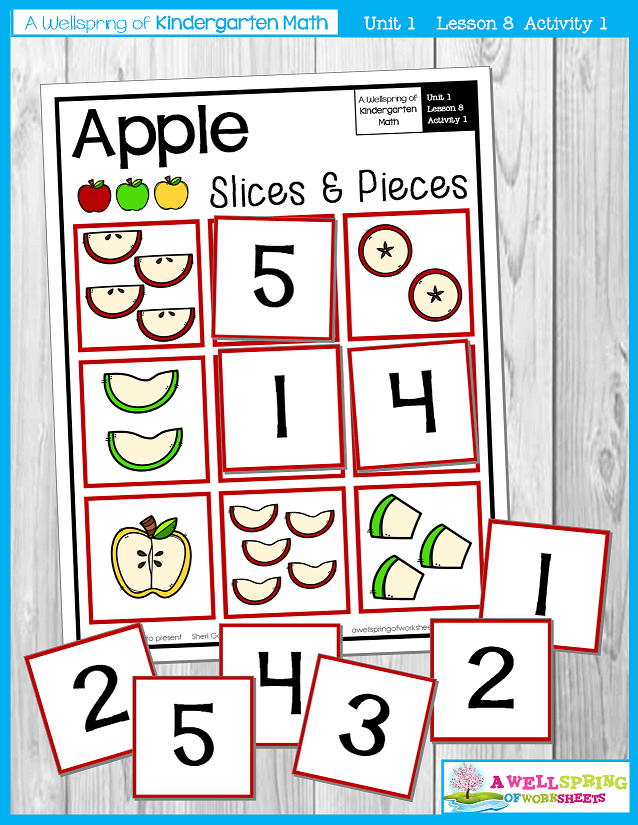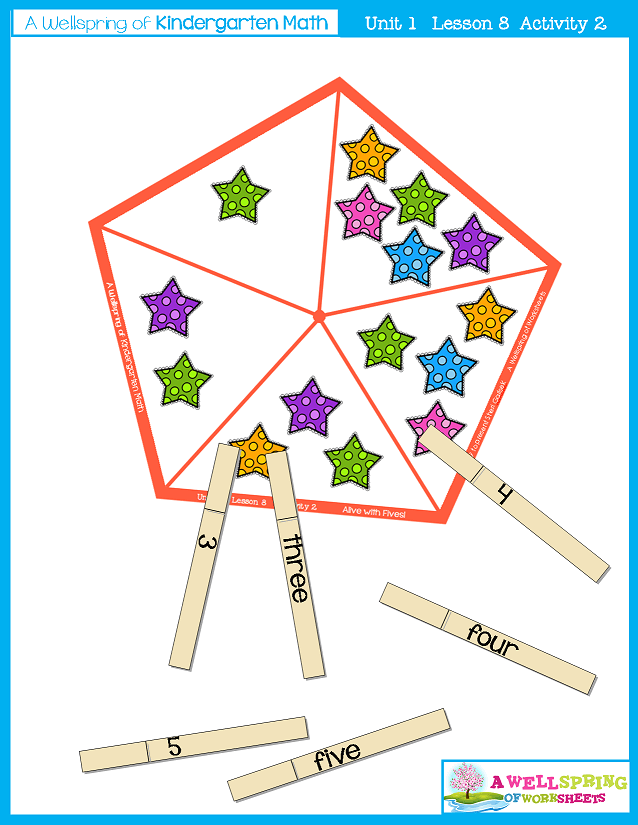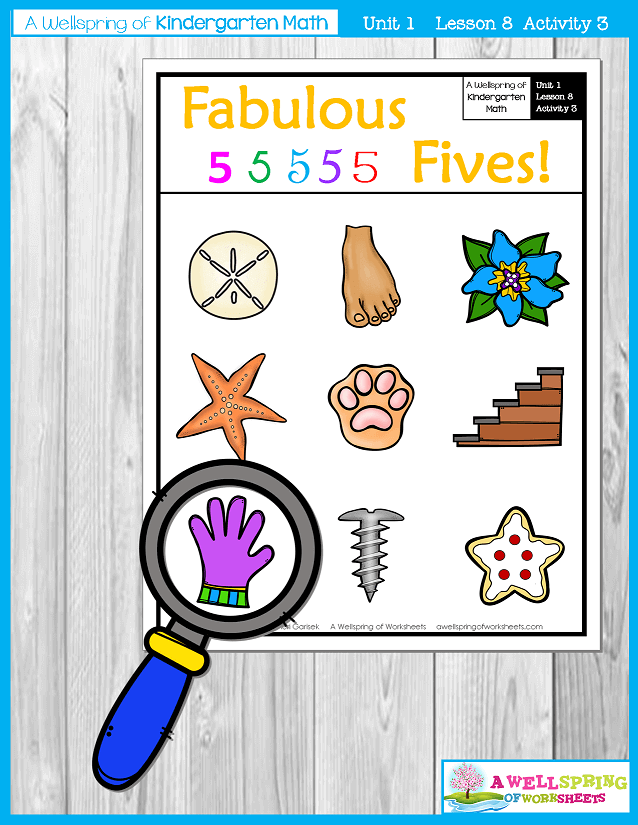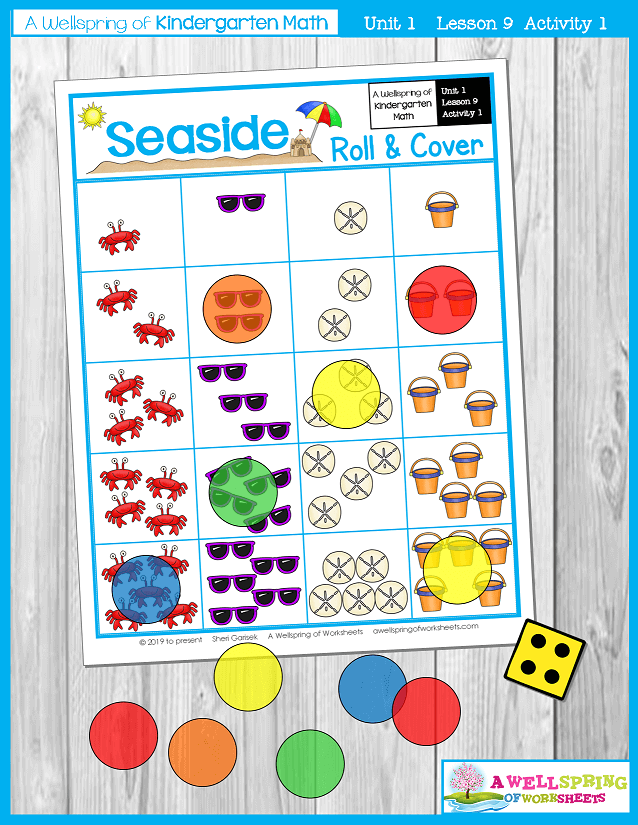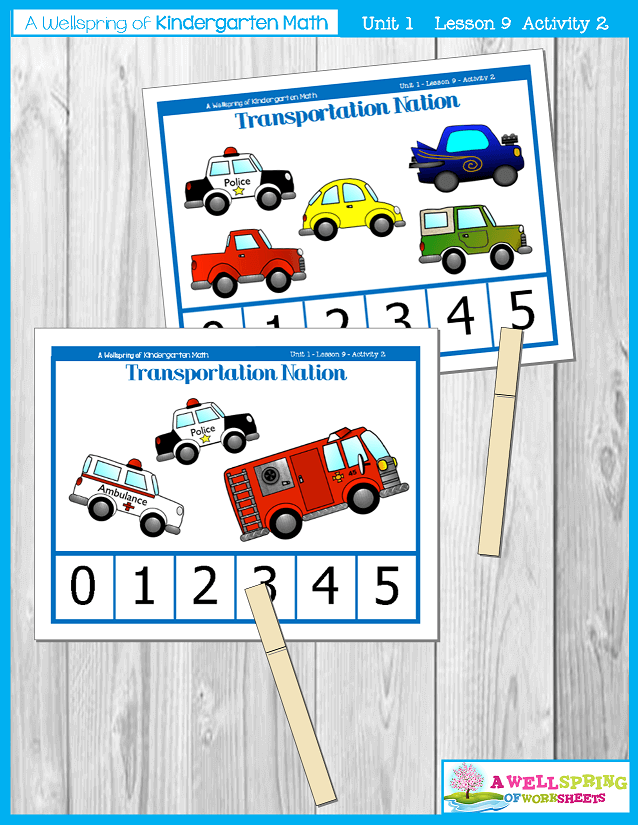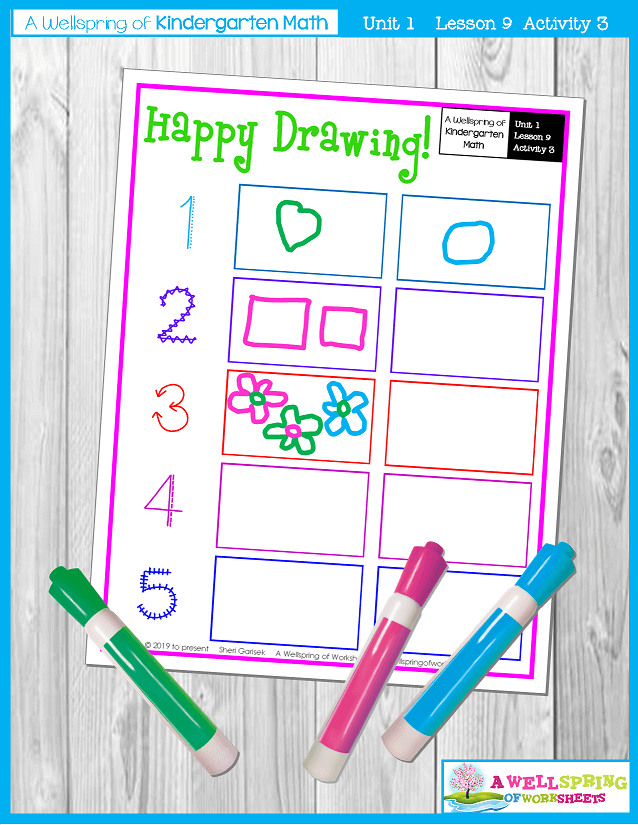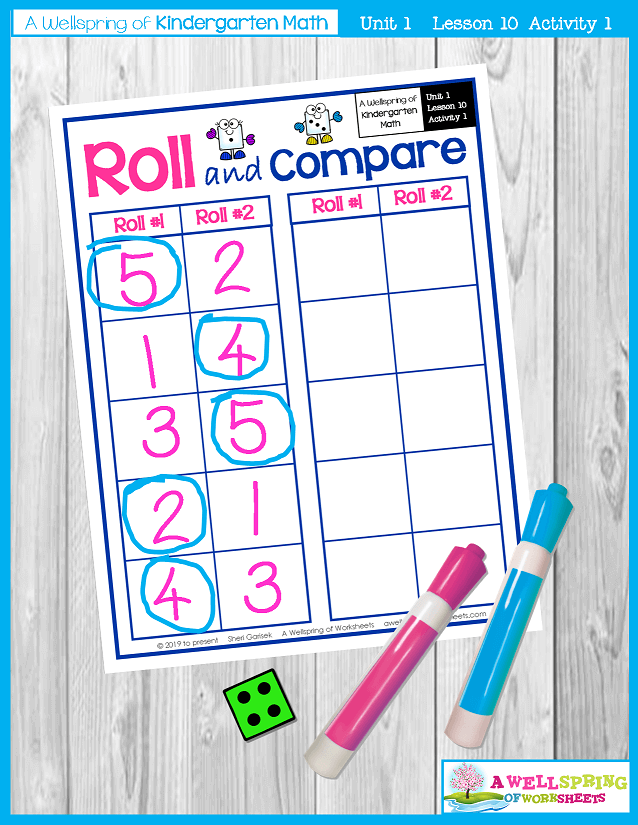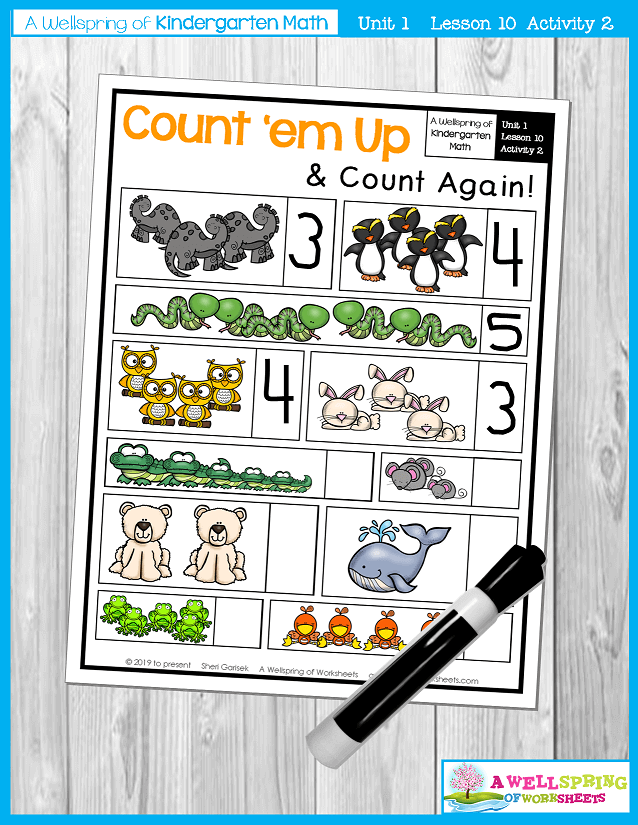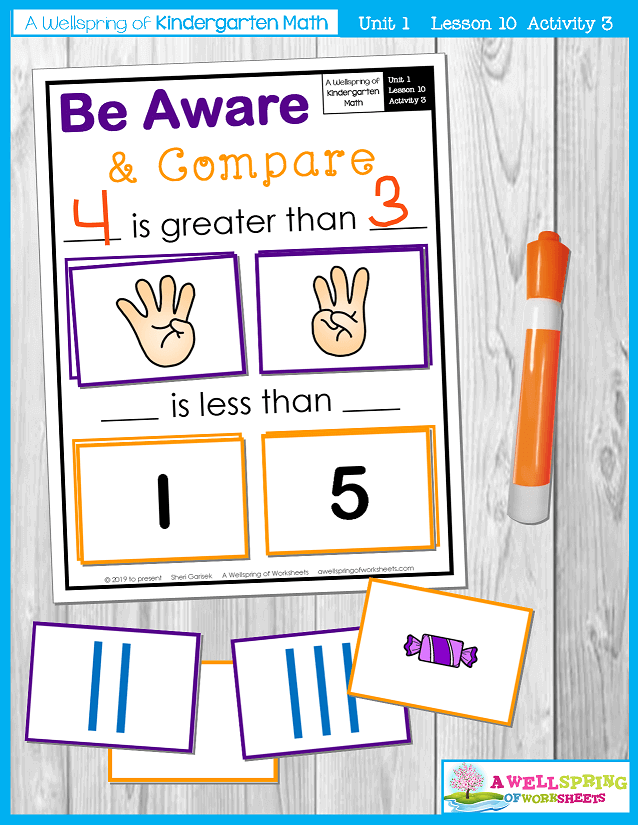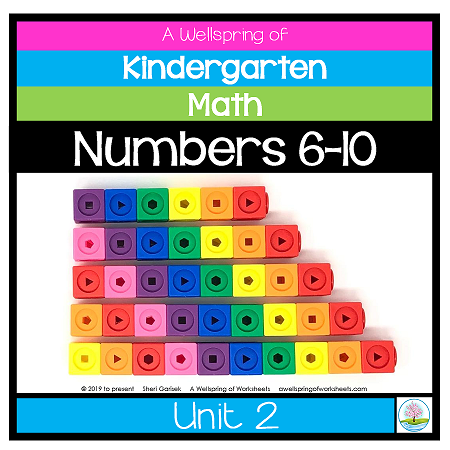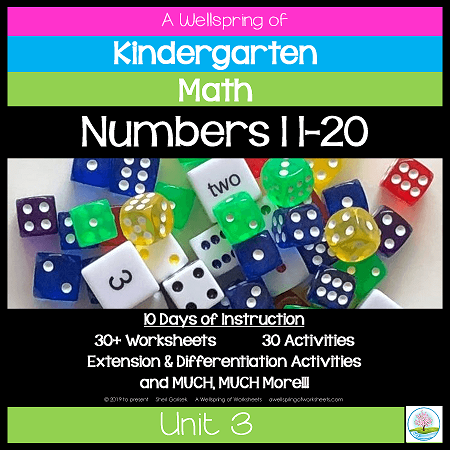I’ve loved creating this Kindergarten Math Curriculum for Numbers 0-5. It was a very creative process and a lot of work, but it was worth it. I think you’ll enjoy using the finished product and find it helpful in teaching your kids numbers 0-5.
At this time the curriculum is only available in my Teachers Pay Teachers store. Click any image in this blog to be taken to my store.
Professionally created and practical, the unit is based on the Common Core standards. It can be used as a stand alone math curriculum or as a supplement to your current curriculum.
You will not be at a loss for resources to use because the unit is full of TONS of fun, engaging and hands-on resources. If you can’t use all the resources in your class time (which you probably won’t!) you can use them for homework, extra practice, time fillers, review days, etc.
It covers 10 days of instruction with a 60 minute time block.
Even though there are fairly detailed lesson plans included, you’ll find that the lessons are extremely flexible so that you can tailor them to your school or district requirements, your math block, your student’s needs and/or your own teaching style. If your kids need more time on the concepts, you can divide the lessons into two days. You can leave out parts of the lessons and take longer on others if you find it works better for you. Use the centers or adapt the lessons for whole group instruction.
Extension and differentiation suggestions and resources are included with EVERY lesson. There’s no need anyone should feel left out or their needs not met.
So let’s get on with the show so you can see exactly what I’m talking about.
If you’d like an example of how I envisioned the lessons being taught, please take a look at my Lesson 1 One-to-One Correspondence on YouTube.
Please scroll all the way to the end. You don’t want to miss anything!
Kindergarten Math Curriculum – The Basics
Let’s start with the basics…
Scope and Sequence
There are six lessons one each for numbers 0-5 and one lesson for the following four topics: one-to-one correspondence, number order, conservation and comparing numbers.
Lesson Standards
As I mentioned earlier, this curriculum is Common Core standards based. Standards targeted in this unit are fall under Common Core Counting and Cardinality for kindergarten.
The standards implemented in this unit are:
K.CC.A.3 K.CC.B.4 K.CC.B.4.A K.CC.B.4.B K.CC.B.4.C K.CC.B.5 K.CC.C.6 K.CC.C.7
Unit Details
You can see at-a-glance what is covered in this unit. On these two pages of Unit Details you’ll find the unit objective and the skills and concepts that are addressed in each lesson.
They give you a good understanding of where the unit is going as a whole and the lesson specifically. As you look it over you can see there is a consistency to the lessons. This consistency carries over into the following units, too.
Storage and Organization
Storing Unit Materials
I’ve included a page showing how I store my unit resources in a 1″ binder and larger a storage box (purchased from Target). Take a look at the images below for more details.
Unit Labels on the Resources
The organizing has already been done for you saving you precious time! One of the great benefits of this curriculum is the labeling. Nearly every resource in this unit clearly tells you which lesson it goes with on the label. The only exceptions would be the fluency and vocabulary cards and any other smaller cards for the activities.
No more wondering, “What lesson does this go with?” or “What lesson should I use this resource with?”. All the organizing has already been done for you. I can get excited about that!
Look at the image below and you’ll see what I mean AND look for the labels on all of the items below as you read or skim through the remainder of this blog.
Assessments
A pre-assessment and post-assessment are included. Each one asks seven questions that will help you ascertain prior knowledge and progress or lack there of.
Use the assessment tracker to document and keep track of your student’s progress and to provide them with extra help if needed.
Lesson Plans
The lesson plans include four main parts:
- Fluency Warm-Up – short warm-up using the fluency cards provided
- Lesson Introduction – direct instruction introducing the lesson for the day through the use of an I Can statement and vocabulary cards
- Lesson for the Day – includes teaching, modeling and practicing two simple counting strategies (Count Out Loud and one other strategy) and using a Number of the Day chart (and possibly the worksheets)
- Practice / Centers – 7-8 options for how to use the rest of the math block. If you use centers, this would be the time to use the activities and/or worksheets. If not, the worksheets, booklet and read aloud would be great to use whole group.
Each part of the lesson has a suggested amount of time to spend on each section, though you can always tweak those times to meet your needs.
If you follow the lesson plans you can pull one of them out and provide them to your substitutes! They’re detailed but simple enough that anyone should be able to follow them.
Materials Needed
These Materials Needed pages tell you exactly what you’ll need to conduct each lesson. Many of the things are resources that are provided in this unit. Others are basic classroom supplies like crayons and pencils.
Lesson Resources
Objectives
The objectives are provided so you can post them during your lessons, if needed. They are also noted at the top of every lesson plan.
Fluency Cards
The fluency cards come in both color and black and white. They are a one fourth page size and include numbers 1-20 represented by objects (apples), dice, base ten blocks, fingers, dominoes, tally marks, twenty frames, numbers and number words.
I Can Statements
The I Can statements are basically the lesson objective worded in a kid friendly way. It focuses your student’s attention on the topic of the lesson and empowers them to learn that concept.
Vocabulary Cards
The unit comes with 12 vocabulary cards. You will use the words “count”and “how many” for every lesson with one or more additional words for most other lessons.
Counting Strategies
There are six counting strategies incorporated in the lessons. The first one, Count Out Loud, is used in every lesson. The remaining five strategies are used in two lessons each. They are: Point and Count, Move and Count, Line Up and Count, Count and Clap, and Recount.
Number of the Day
This unit comes with the parts needed to make and use a Number of the Day chart specifically for numbers 0-5. Arrange the parts on a piece of poster board to match the Number of the Day worksheets so your kids can fill them in while you do fill in the chart or at a center afterwards. The Number of the Day chart is used during the Lesson for the Day, the third part of the lesson.
For kids who may be ready for a challenge, use the remaining chart parts on the back of your poster board to match the second page of the Number of the Day worksheet.
Suggested Reading
This unit comes with 10 suggested books. Each book was hand picked to go with each lesson.
Worksheets
Each lesson has 3-4 worksheets:
Worksheet 1 – Number of the Day worksheets – has two pages, one for basic number sense, and the second page for kids who are ready for more challenge – use with the Number of the Day chart for numbers 0-5
or Worksheet 1 – Lesson objective – a worksheet that coordinates with the lesson objective – use on the days that do not include the Number of the Day chart
Worksheet 2 – Number Tracing worksheet – either for the number of the day or numbers 1-5 in general
Worksheet 3 – My Book of (objectve for the day) – technically not a worksheet but a booklet, these 1/2 page size books have seven pages that reinforce the objective for the day
Activities
There are three activities for every lesson. These activities are my favorite part of the lesson. I love creating them and I hope you enjoy using them in your classroom with your kids.
Every lesson comes with three activities and any cards, etc. that might be needed. Most lessons have one activity that employs the counting strategy for the day.
The activities all come in color so you’ll need a color printer to print them out. However, you can print them in black and white if you prefer.
I would only print them on card stock. For most of the activities you will need white card stock, but some are easily suited to be printed on color card stock. For many of the activities you will need classroom or other supplies like clothespins or dry erase markers and erasers. Some of the activities need to be laminated because they will be written on with a dry erase marker.
A good number of the activities can also be used as a worksheet.
Each activity has three parts to it:
- The activity board itself and its corresponding parts – these come in many different shapes and sizes
- An extension activity – these were created to be printed right on the back of the activity – great for fast finishers or kids that can use an extra challenge
- An instruction card – these tell you the materials you’ll need, the instructions, possible options for how to use the activity, one or more differentiation ideas and an illustration of the activity in action
Extension Activities
Every activity has an extension activity. They should be printed right on the back of the activity and will never use any materials other than those that were used in the main activity. Below is an example of three different extension activities. They are all clearly labeled as the extension activity and have the same labels as all the other resources in this unit.
Instruction Cards
Every activity comes with an instruction card. Below is an example of two instruction cards. Note that they are labeled with the unit, lesson and activity numbers as well as an illustration, which easily identifies which activity they go with.
The images below showcase every activity that’s included in this unit in action. The extension activities for each activity are not included in the pictures below, but are along the same lines as the main activities themselves. Every activity has a name like “Blueberry Monster Number Order” (as seen above) rather than just a number. All activity pages or boards have the standard label on them.
Lesson 1 – One-to-One Correspondence
Lesson 1 – Activity 1 – Apple Count & Trace
This activity uses the Point and Count counting strategy.
Lesson 1 – Activity 2 – Kite Puzzles
Lesson 1 – Activity 3 – Fido’s Finds
Lesson 2 – Number Order
Lesson 2 – Activity 1 – Perky Little Flowers
Lesson 2 – Activity 2 – Number Match Wheel
Lesson 2 – Activity 3 -Blueberry Monster
This activity uses the point and count counting strategy.
Lesson 3 – Number 0
Lesson 3 – Activity 1 – Zero of These for a Pet
Lesson 3 – Activity 2 – Apple Stand To-Go Orders
This activity uses the Move and Count counting strategy.
Lesson 3 – Activity 3 – Cats with Zero Hats
Lesson 4 – Number 1
Lesson 4 – Activity 1 – Busy Bees Roll & Move
Lesson 4 – Activity 2 – Apple Growin’ and Pickin’
This activity uses the Move and Count counting strategy.
Lesson 4 – Activity 3 – Wonderful One!
Lesson 5 – Number 2
Lesson 5 – Activity 1 – Wagon Ride Count to 5
Lesson 5 – Activity 2 – Line ‘Em Up and Count
This activity uses the Line Up and Count counting strategy.
Lesson 5 – Activity 3 – Terrific Twos
Lesson 6 – Number 3
Lesson 6 – Activity 1 – Kids on the Bus
This activity uses the Line Up and Count counting strategy.
Lesson 6 – Activity 2 – Little Chick Count and Match
Lesson 6 – Activity 3 – Thrilling Threes!
Lesson 7 – Number 4
Lesson 7 – Activity 1 – Clap and Stomp!
This activity uses the Clap and Count counting strategy.
Lesson 7 -Activity 2 – Count to 5 Roll and Move
Lesson 7 – Activity 3 – Fantastic Fours
Lesson 8 – Number 5
Lesson 8 – Activity 1 – Apple Slices and Pieces
Lesson 8 – Activity 2 – Alive with Fives!
Lesson 8 – Activity 3 – Fabulous Fives!
Lesson 9 – Conservation
Lesson 9 – Activity 1 – Seaside Roll and Cover
This activity uses the Recount counting strategy.
Lesson 9 – Activity 2 – Transportation Nation
Lesson 9 – Activity 3 – Happy Drawing
Lesson 10 – Comparing Numbers
Lesson 10 – Activity 1 – Roll and Compare
Lesson 10 – Activity 2 – Count ‘Em Up and Count Again
This lesson uses the Recount counting strategy.
Lesson 10 – Activity 3 – Be Aware and Compare
Take a moment to check out my Teachers Pay Teachers store for all the Kindergarten Math Curriculum Units!
Thank you for taking the time to get all the way to the end of this post!


